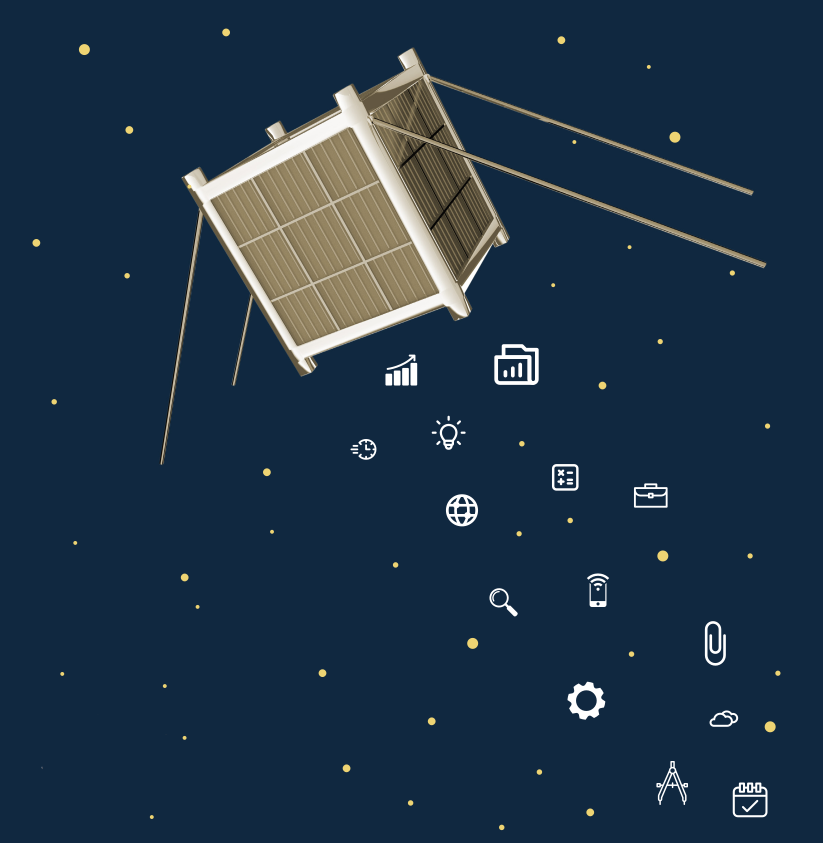The first session of the UB institutes will provide a more realist and updated view on space exploration

On June 22, from 9:00 a.m. to 2:00 p.m., the University of Barcelona is holding the session “The exploration (and exploitation) of space”. The objective of this meeting is to tackle the theme of space from a cross-sectional perspective using the research carried out by several research institutes of the UB.

On June 22, from 9:00 a.m. to 2:00 p.m., the University of Barcelona is holding the session “The exploration (and exploitation) of space”. The objective of this meeting is to tackle the theme of space from a cross-sectional perspective using the research carried out by several research institutes of the UB.
The event, which will be live streamed on UBtv, will start with a roundtable on the Newspace Strategy for Catalonia, launched by the Catalan Government. Participants in this debate are Daniel Marco, director-general of Innovation and Digital Economy of the Catalan Government; Ignasi Ribas, director of the Institute for Space Studies of Catalonia (IEEC); Jordi Corbera, manager of the PCOT program of the Cartographic and Geologic Institute of Catalonia, and Mònica Roca, president of the Barcelona Chamber of Commerce. The debate will be chaired by Xavier Luri, director of the Institute of Cosmos Sciences of the UB (ICCUB).
In the second part of the session, several researchers will talk, in a series of short talks, on the exploration and exploitation of space, as well as the science that derives from them. These contributions will create a plurality of perspectives that will provide a more realist and updated view on this issue.
The talks will treat more scientific issues, such as the spatial time using the study of heliosphere, astrochemistry, the role of methane as a biomarker of the effect of space in the brain, and more technological aspects such as space communications, remote sensing technologies and nanometric techniques applied to the study of meteorites. From the social and humanistic perspective, the session will talk about the economic impact of space exploration, its influence on videogames and its historical view.
About the UB research institutes
The UB has eighteen UB-specific research institutes, apart from belonging to the directive committee of twelve more. Four of these UB-specific institutes received the excellence accreditation María de Maeztu, given by the former Spanish Ministry of Economy and Competitiveness. The UB research institutes promote and conduct interdisciplinary and specialized research activities in several fields of science, technology, social sciences, humanities, and arts. All of them carry out a competitive research, innovation projects and promote the transfer of research results to society.
The institutes are the following:
• Institute of Cosmos Sciences (ICCUB), awarded with the accreditation María de Maeztu
• Institute of Mathematics (IMUB), awarded with the accreditation María de Maeztu
• Institute of Neurosciences (UBNeuro), awarded with the accreditation María de Maeztu
• Institute of Theoretical and Computational Chemistry (IQTCUB), awarded with the accreditation María de Maeztu
• Institute of Biomedicine (IBUB)
• Institute of Nanoscience and Nanotechnology (IN2UB)
• Water Research Institute (IdRA)
• Biodiversity Research Institute (IRBio)
• Institute for Research on Medieval Cultures (IRCVM)
• Barcelona Economics Analysis Team (BEAT)
• Institute for Research on Applied Regional and Public Economics(IREA)
• Institute of Research in Education (IRE)
• Institute of Research in Food Nutrition and Safety (INSA-UB)
• Institute of Complex Systems (UBICS)
• Geomodels Research Instiute
• Legal Research Institute (TransJus)
• Institute of Ancient Near East Studies (IPOA)
• Institute of Archaeology (IAUB)
